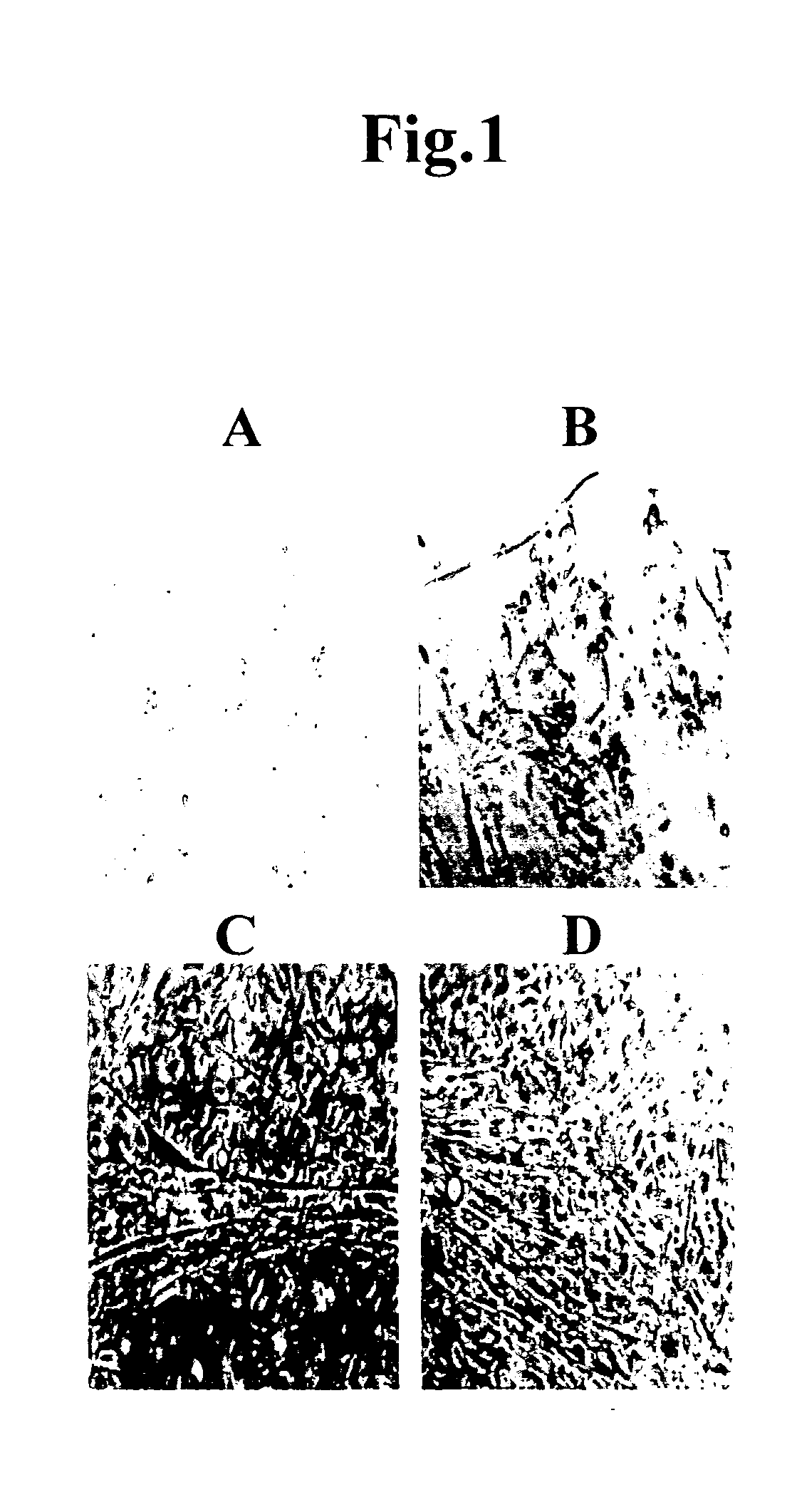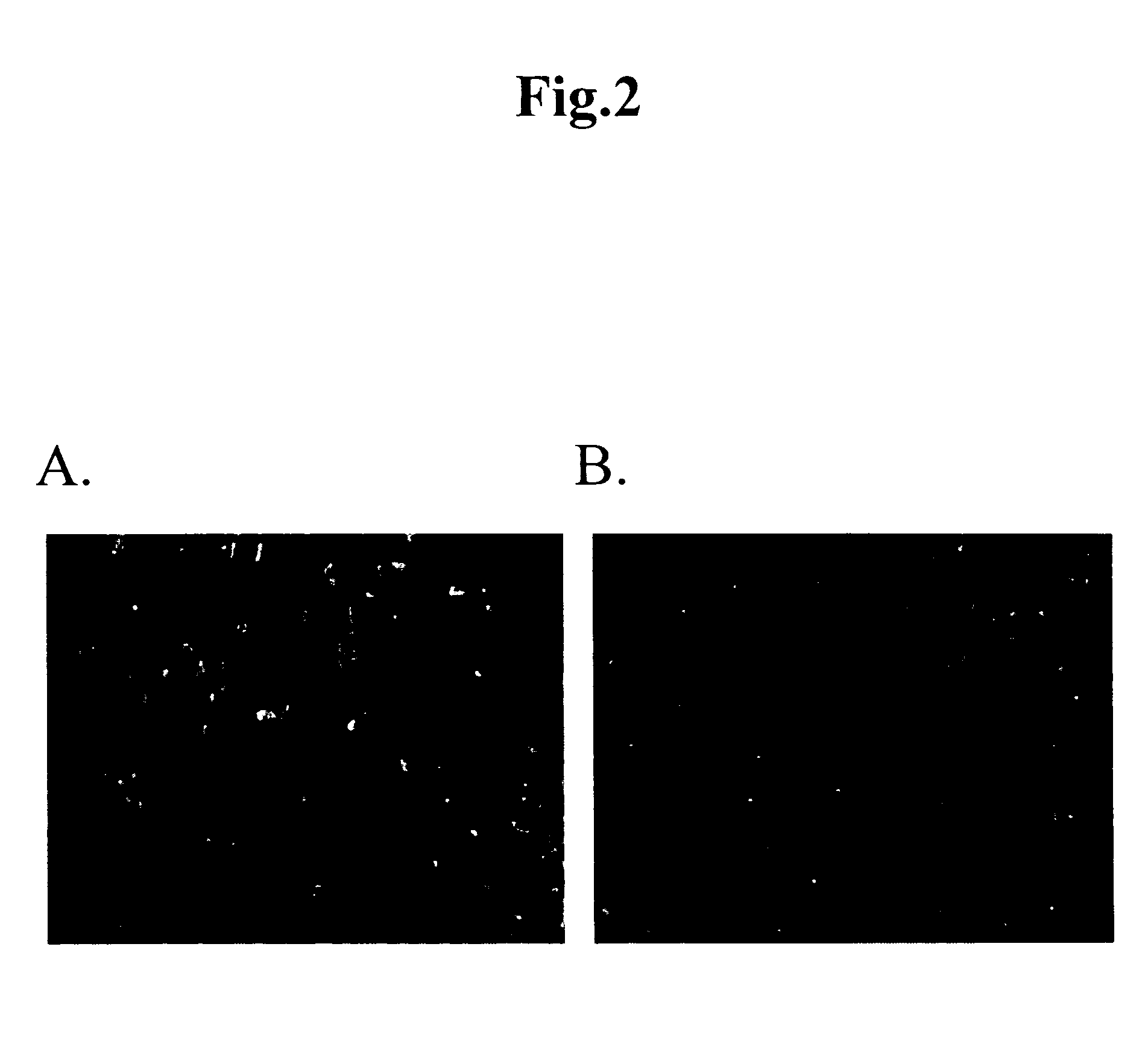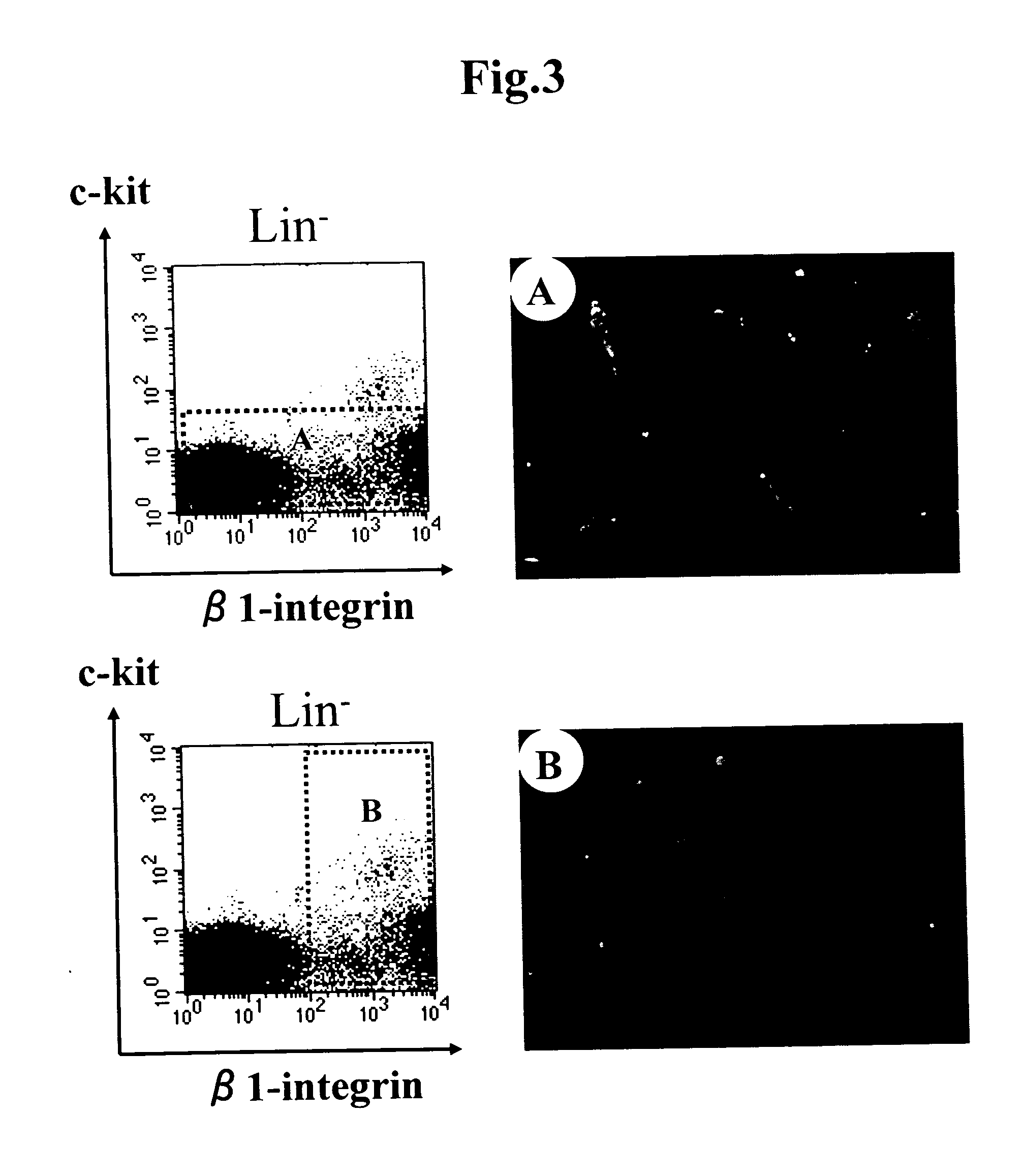Induction of Myocardial Cell From Mammalian Bone Marrow Cell or Cord Blood-Derived Cell and Fat Tissue
a technology of which is applied in the field of induction of myocardial cells from mammalian bone marrow cells or cord blood-derived cells and fat tissues, can solve the problems of ethical problems, inability to apply es cells to actual medical practice, and inability to ethically prepare es cells for each patient, etc., to achieve high safety and rare life-threatening risks for patients
- Summary
- Abstract
- Description
- Claims
- Application Information
AI Technical Summary
Benefits of technology
Problems solved by technology
Method used
Image
Examples
example 1
Differentiation of Fat Tissues into Myocardial Cells
[0050] Fat tissues (about 1.5 ml) were removed from the cervical or abdominal region of a mouse or rat, the tissues were sliced using ophthalmic surgery scissors, and the sliced tissues were immersed in 1 ml of dispase solution at 37° C. for 15 minutes to loosen the cells. The cells were then filtered through a 40-micron nylon mesh filter, sowed at a cell density of 1×106 cells / ml, and then subjected to two-dimensional culture on a 24-well culture dish (diameter: about 1.3 cm) in 5% CO2 at 37° C. using a DMEM medium containing 10% FCS.
[0051]FIG. 1 shows the results of culturing mouse fat cells. Beating myocardial cell-like cells were observed 3 days after the initiation of culture, and proliferation of spherical myocardial precursor / stem cell-like cells was initiated simultaneously therewith. Myocardial cells can be identified by abundant mitochondria, ANP granules, and Z bands with the use of a stereoscopic microscope, and by mo...
example 2
[0052] In order to confirm that the cells obtained in Example 1 had the characteristics of myocardial cells, immunostaining was carried out using a fluorescence-labeled anti-sarcomeric actin (α-Sarcomeric muscular Actin (Sr-1)) antibody (Dako) or anti-cardiac actin (MBL). Sarcomeric actin and cardiac actin are proteins that exhibit expression patterns peculiar to myocardial cells.
[0053] Immunostaining was carried out by culturing mouse fat tissue-derived cells in the same manner as in Example 1 for 14 days and then adding 1 μg / ml of antibody thereto. The results are shown in FIG. 2. As is apparent from FIG. 2, the cultured cells were labeled by the green-fluorescence, which indicates that they were sarcomeric actin- and cardiac actin-positive cells.
[0054] The fat tissues were allowed to disperse in the same manner as in Example 1, staining was carried out using the Lin antibody (a mixture of CD4, CD8, Gr-1, Mac-1, and TER119 (Pharmingen) that can recognize mature bl...
example 3
[0055] In order to confirm that the cells obtained in Example 1 are myocardial cells, gene expression analysis was carried out via RT-PCR. At the outset, mouse fat tissue-derived cells were cultured in the same manner as in Example 1 for 14 days, total RNA was extracted using the RNeasy Mini Kit (Qiagen), and the extracted total RNA was reversely transcribed into cDNA using the PCR kit (Clontech). Subsequently, RT-PCR was carried out with the Advantage polymerase Mix (Clontech) and using the following PCR primers for detecting α,β-MHC, α-skeletal A, α-cardiac A, MLC-2a,2v, and BNP.
α-MHC-S(SEQ ID NO: 1)5′-tgt ctg ctc tcc acc ggg aaa atc t-3′α-MHC-AS(SEQ ID NO: 2)5′-cat ggc caa ttc ttg act ccc atg a-3′β-MHC-S(SEQ ID NO: 3)5′-aac cca ccc aag ttc gac aag atc g-3′β-MHC-AS(SEQ ID NO: 4)5′-cca act ttc ctg ttg ccc caa aat g-3′α-skeletal A-S(SEQ ID NO: 5)5′-gga gat tgt gcg cga cat caa aga g-3′α-skeletal A-AS(SEQ ID NO: 6)5′-tgg tga tcc aca tct gct gga agg t-3′α-car...
PUM
| Property | Measurement | Unit |
|---|---|---|
| Time | aaaaa | aaaaa |
| Ratio | aaaaa | aaaaa |
Abstract
Description
Claims
Application Information
 Login to View More
Login to View More - R&D
- Intellectual Property
- Life Sciences
- Materials
- Tech Scout
- Unparalleled Data Quality
- Higher Quality Content
- 60% Fewer Hallucinations
Browse by: Latest US Patents, China's latest patents, Technical Efficacy Thesaurus, Application Domain, Technology Topic, Popular Technical Reports.
© 2025 PatSnap. All rights reserved.Legal|Privacy policy|Modern Slavery Act Transparency Statement|Sitemap|About US| Contact US: help@patsnap.com



